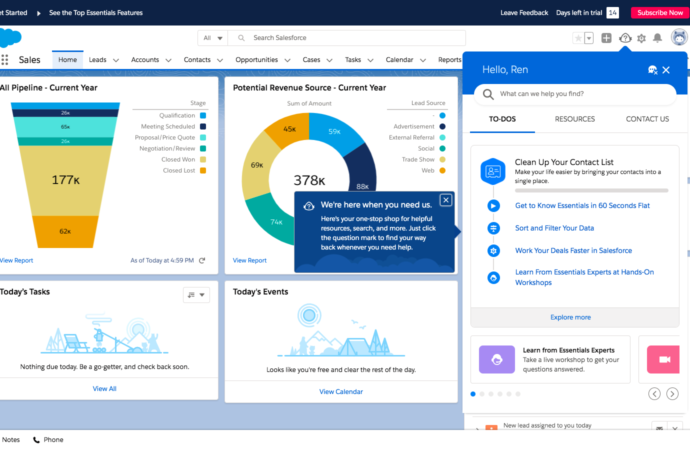Thinking about investing in a customer relationship management (CRM) software? If you are, now is the time to get on board. Here’s why: the U.S. real estate market is finally making a comeback after years in decline. In fact, there are reports that U.S. housing rebounded to a four year high last month. There are less vacant homes on the market and applications for building permits are increasing.
Customer relationship management within the real estate realm is key to success. Fortunately, there are tools that can make it easier to manage those relationships and move them close to sales closings. If you’ve never looked at what the right solution for real estate CRM can accomplish, consider these four benefits. They are often enough to demonstrate how valuable the right software solution can be in this competitive field.
Real estate CRM benefits are plenty and implementing such a system is well worth it in the long run. A real estate CRM system helps build closer relationships between realtors and their potential clients. While a CRM can describe any process or strategy used to improve and further analyze customer interaction, the term usually refers to a variety of tools and technologies used with the goal of generating real estate leads, nurturing leads and converting potential clients.
Creation and Maintenance of Client Profiles
There’s a lot to be said for knowing as much about your clients as possible. Having that information saved in an organized profile is one of the best ways to draw on the data when needed. In a pre-Internet era, real estate professionals often created manual profiles that were housed in folders.
Today, the right CRM software makes data collection and use much easier. You can use it to maintain information about tastes and preferences, features that properties must possess, things that clients want but don’t consider deal-breakers, and even the price range the client can afford. All this data can be drawn on at any time to match buyers with properties.
Enhancing the Process of Performing Tasks in Order
Many tasks associated with real estate transactions must be done in a specific order. At the very least, it’s necessary to document when and by whom each task was completed. Creating a history of this type can come in handy in more than one way.
The right CRM software makes it all the easier to know what steps were taken to find the right property so far, what documents were created, issued, and signed, the dates involved, and even things like the results of holding open houses. At a glance, you can see what has been done on behalf of a client, and what tasks are coming up next.
Simplify the Process of Document Creation
Document creation itself is key to success in the real estate field. There are quite a few documents that must be created and maintained as part of any deal. From inspection results to contracts to other documents required by local authorities, nothing can be overlooked.
You may not be aware of it, but the better options for real estate CRM make it easier to generate the documents required. There’s also an import feature that makes it easy to include documents issued by outside parties in the permanent history. For example, inspections conducted on the wiring, plumbing, and foundation can be imported in their original form, complete with the signatures of the parties who conducted the inspections.
Tracking Lead Progression Through the Sales Funnel
At a glance, the CRM software makes it easy to determine where the client happens to be in the sales funnel. This is important, since the current status allows you to know what actions need to be taken next. With that in mind, you can schedule those tasks and receive reminders when it’s getting close to the time to act on them.
This is great, since you will know when to call a client who’s on the edge of making a decision about the property. You also know when to call because there’s been a change associated with the property. That change could be a drop in price or the fact that it’s been sold to another buyer. In either scenario, the tracking helps you to know how to make the most of the upcoming contact and move the relationship forward.
Remember that not all options for real estate CRM work exactly the same. Pay close attention to the features, the degree of customization that’s possible, and the ease of use. Doing so will make it all the easier to settle on the solution that’s right for your firm.



















Leave a Comment
Your email address will not be published. Required fields are marked with *